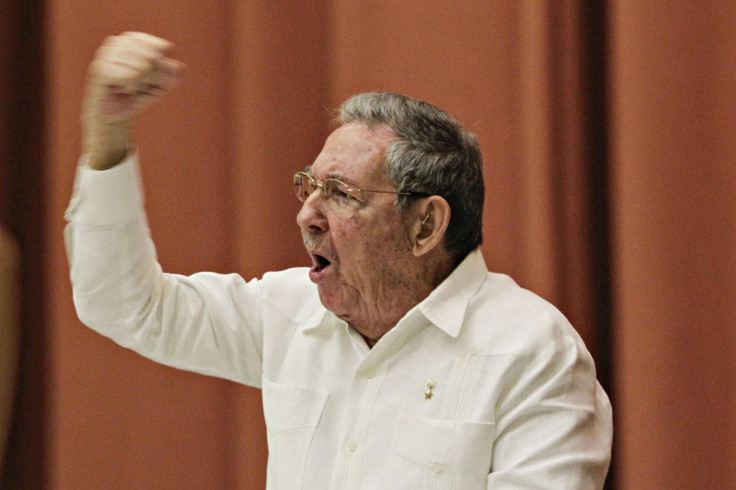Communist Rule Will Continue In Cuba Despite Renewed US Relations, Castro Says

Renewed diplomatic relations with the United States will not mean an end to communist rule in Cuba, Cuban President Raúl Castro declared Saturday. In a televised speech at Cuba’s National Assembly, Castro praised U.S. President Barack Obama’s decision to renew diplomatic relations between the two countries, but also insisted that the U.S. not meddle in Cuban affairs.
Castro said Cuba would accelerate economic reforms, including putting a speedy end to the country’s dual-currency system, but changes would need to be gradual to create a system of “prosperous and sustainable communism.” He also declared a victory for the Cuban Revolution, the New York Times reported.
“Every country has the inalienable right to choose its own political systems,” Castro said, according to the Times. “No one should believe that improving relations with the United States means Cuba renouncing its ideas.”
Castro said he was open to discussing a number of issues with the Obama administration, which has said it intends to open an embassy in Havana, and will work to ease travel restrictions and lift the trade embargo that has existed since 1960. But the 83-year-old leader warned that progress would not happen if predicated on a rollback of Cuba’s economic principles.
“In the same way that we have never demanded that the United States change its political system, we will demand respect for ours,” Castro said.
He also stressed that with the process of open relations just beginning “the only way to advance is with mutual respect.”
The speech was attended by the recently reunited Cuban 5 -- the group of Cuban intelligence officers freshly released from jail for spying in the U.S. in exchange for Alan Gross, the USAID contractor imprisoned in Cuba, BBC reported. Also on hand was Elian Gonzalez, the young boy who was at the center of a legal battle between the U.S. and Cuba in the 1990s. Gonzalez is now a 21-year-old graduate of the military academy.
© Copyright IBTimes 2025. All rights reserved.






















